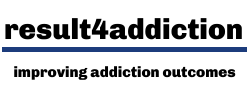Trusted people research
selected articles
There are good reasons for making the establishment of support from family or friends the top priority
In every day life most of us feel ourselves fortunate if we have support from family and friends and especially so to get us through difficult times. People with addiction problems often lose some or maybe all of their social support network before they start to work on changing their substance use. It can be that their helpers are the only support going. This first review article is worth reading in full. We have summarised the take away messages…
Review :: How important is it to have supportive friends and family?
McCrady BS (2004) To have but one true friend: implications for practice of research on alcohol use disorders and social networks. Psychology of Addictive Behaviors 18: 113–121
The importance of support from family and friends cannot be overstated. “To have one true friend” makes it more likely a person will stop drinking, go for treatment and more likely to get well in treatment. They will also have a better chance of longer term change. Of course some relationships have a negative impact on chances of recovery…
Qualitative analysis :: What is it like to have an addicted child?
Missouridou et al (2023) Family Recovery from Addiction and Trauma: An Interpretative Phenomenological Analysis of Mothers' Lived Experience Adv Exp Med Biol 1425: 105-117. doi: 10.1007/978-3-031-31986-0_10 (PubMed link)
The researchers interviewed ten mothers who had lived experience of living with an addicted child. They describe a threatening, unpredictable and disruptive atmosphere in the home with scenes of violence and neglect. The mothers themselves had often been in problematic relationships including husbands who were abusive and had addiction problems. Addiction is described as a traumatic experience that erodes everything healthy in the family.
The aim of this study was to illuminate the pathways taken by families, particularly mothers, from the early disruption and heart break of what felt like the loss of a child. The researchers cite the “loss of illusions” framework whereby mothers are expected to believe: (a) my world is benevolent, (b) my world is meaningful, and (c) I am worthy”. For mothers and other family members, these beliefs were shattered by the chaos and the stigmatising secret of substance use which eroded normal communication and social support.
Trusted People can learn to use motivational dialogue
The importance of social networks and family members in facilitating recovery is well-established in the addiction treatment literature. Of course people in a social network may be a negative influence as well as positive. We encourage practitioners to adopt motivational dialogue as a style of working and this approach has been shown to be effective which begs the question does the same apply to Trusted People? The next two studies show that a motivational way of talking is equally important for Trusted People in a social support network…
Important studies :: Effect of a motivational style of talking
Apodaca TR, Magill M, Longabaugh R, Jackson KM and Monti PM (2013) Effect of a Significant Other on Client Change Talk in Motivational Interviewing. Journal of Consulting Clinical Psychology 81: 1-21 doi:10.1037/a0030881.
Bourke E, Magill M and Apodaca TR (2016) The In-Session and Long-Term Role of a Significant Other in Motivational Enhancement Therapy for Alcohol Use Disorders. Journal of Substance Abuse Treatment 64: 35–43 doi.org/10.1016/j.jsat.2016.01.008
These two studies used a similar methodology to analyse whether talk by a significant other (SO) was supportive of change or not, and then what was the response of the problem drinker.
SO statements supporting change are: encouraging, supportive and/or appreciative of the client as a person and not directly related to their drinking, advice, suggestions, possible solutions or actions that could aid behaviour change. Also language categorised as: desire, ability, reasons, need, commitment, or taking steps toward the person making a change in their drinking.
SO statements not supporting change are: giving an order, command, or direction in language that conveys disapproval, disagreement, or negativity. Also arguements, shaming, or blaming the person, minimising the severity of the drinking, reference to barriers to change, or highlighting positive aspects of drinking, or self-disclosure including references to their own drinking.


